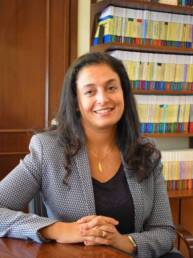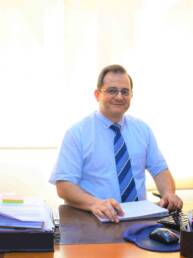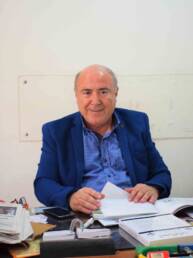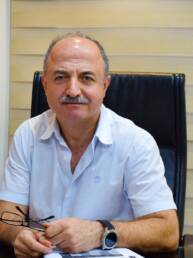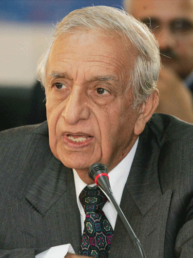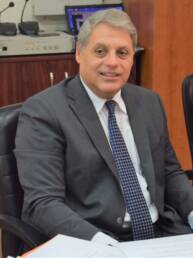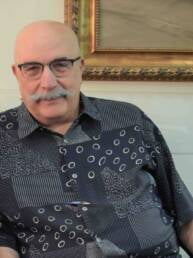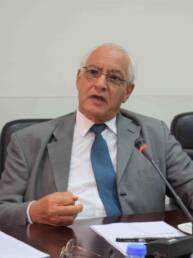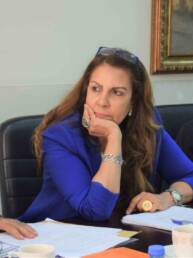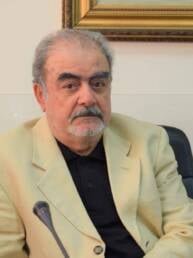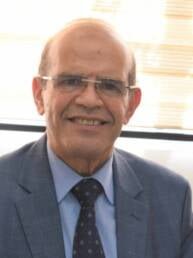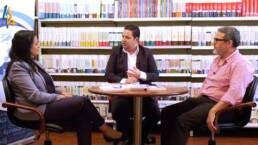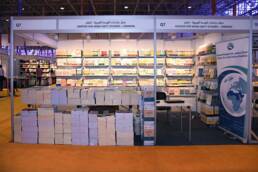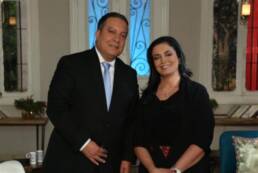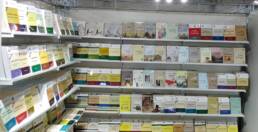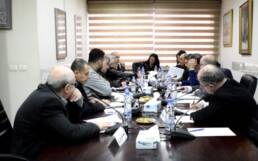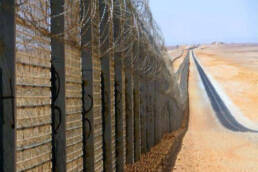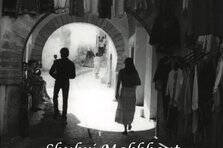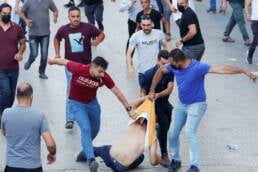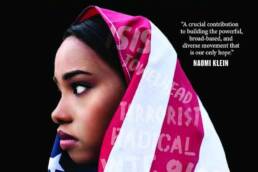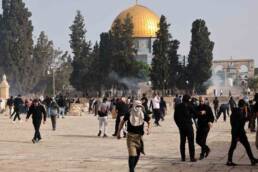Management
Centre for Arab Unity Studies
Management
The Center is managed by a Director General selected by the Executive Committee for a four-year-period and approved by the Board of Trustees. The Director General supervises the administrative body of the Center and submits periodic reports on the Center’s activities and financial situation to the Executive Committee and the Board of Trustees. Mrs. Luna Mufleh AbuSuwaireh was appointed Director General of the Center in May 2017.
Al-Mustaqbal Al-Arabi Journal
Centre for Arab Unity Studies
Pages
About The Journal
(ISSN 1024-9834)
The Arab Future (Al-Mustaqbal Al-Arabi) is a peer-reviewed monthly Arabic journal published by the Center for Arab Unity Studies since 1978. It is concerned with the affairs of the Arab world, its renaissance and unity, and what is related to it and affects it regionally and internationally at various political, economic, social, cultural, environmental, scientific and technological levels. The journal stimulates a critical sense, and seeks in its various sections to provide a scientific, rational and objective reading of the issues and files raised or important Arab and international, as it discusses controversial issues from multiple perspectives.
The topics of the journal are divided into different sections, each of which has its own criteria and for publishing its conditions. It expands its pages to various Arab researchers and gives priority to new texts, both at the level of data and information, or at the level of methodological and theoretical approaches and conclusions.
The editorial team
Luna AbuSwaireh
Editor-in-Chief
Fares Abi Saab
Edit Manager
Gaby El-Khoury
Researcher
Obada Kaser
Researcher
Salam Saad
Editorial secretary
Mohamad Shouman
Proofreader
Zeinab Sabra
Secretary
Accreditation Standards by Arab Citation & Impact Factor "Arcif"/ Arcif Analytics
You can view the journal's results in the annual reports of ARCIF ANALYTICS between 2018 and 2024.
Latest issues
We would like to point out that all issues of the hournal until the end of 2021 are available for downloading and reading for free



Centre for Arab Unity Studies
Contribution to Al-Mustaqbal Al-Arabi Journal
You can contribute to the magazine through many chapters, taking into account the conditions of publication (click on the conditions of publication for more information) or visit the writing page for the magazine
Board of Trustees
Centre for Arab Unity Studies
Pages
Current Board of Trustees
The Board of Trustees of the Center consists of 30 members from different countries of the Arab world. The Board supervises the activities of the Center, the work of the Executive Committee, secures the resources of the Center, monitors its expenditure, approves the budget, selects an Executive Committee from among its members, approves the appointment of the Director General of the Center, and conducts a meeting every year.
Members of the Board of Trustees:
Ahmed Youssef Ahmed (Egypt), Assad Abdel Rahman (Palestine / Jordan), Ismail Al-Shatti (Kuwait), Jamil Matar (Egypt), Khadija Sabbar (Morocco), Khawla Matar (Bahrain), Samir Abed Al-Hadi (Palestine / Jordan), Saif bin Hashel Al Maskari (Sultanate of Oman), Taher Kanaan (Palestine / Jordan), Al-Tayeb Dajani (Palestine / Jordan), Abdallah El Sayed Ould Abah (Mauritania), Abdelmalek El Mikhlafi (Yemen), Arous El-Zoubeir (Algeria), Essam Nouman (Lebanon), Ali Eddin Hilal (Egypt), Ali Fakhro (Bahrain), Kamal Khalaf Al Taweel (Palestine/ United States), Labib Kamhawi (Palestine/ Jordan), Mohamed Said El Tayeb (Saudi Arabia), Mohamed Fayek (Egypt), Moheiddine Oumaymour (Algeria), May Al-Masri (Palestine/Lebanon), Mounir Shafiq (Palestine), Nasif Hetti (Lebanon), Nevine Moussaad (Egypt), Youssef El-Hassan (United Arab Emirates), Youssef El-Darweesh (Qatar), Youssef Shuwairi (Lebanon).
Dr. Ali Muhammad Fakhro chairs the Board of Trustees of the Center after he was elected unanimously for a second term of four years at the meeting of the Board that was held on January 20, 2023. The renewal for a second term was also held for the Chairman of the Executive Committee, Dr. Ahmed Youssef Ahmed, and the members of the committee, Professor Al-Tayeb Dajani, Dr. Ali Eddin Hilal, Dr. Kamal Khalaf Al Taweel, Dr. Nevine Moussaad, Dr. Youssef El-Hassan and Dr. Youssef Shuwairi.
The Board of Trustees also includes honorary members who contributed to the establishment of the Center and supporting national and Arab causes, and they participated over many years effectively in the Board.
Executive Committee
It is composed of seven members elected by the Board of Trustees from among its members for a four-year-period. The Board of trustees renewed for the executive committee for a second term on a meeting held on January 20, 2023. The renewal for a second term was also held for the Chairman of the Committee, Dr. Ahmed Youssef Ahmed. The members of the committee are: Professor Al-Tayeb Dajani, Dr. Ali Eddin Hilal, Dr. Kamal Khalaf Al Taweel, Dr. Nevine Moussaad, Dr. Youssef El-Hassan and Dr. Youssef Shuwairi.
Management
The Center is managed by a Director General selected by the Executive Committee for a four-year-period and approved by the Board of Trustees. The Director General supervises the administrative body of the Center and submits periodic reports on the Center’s activities and financial situation to the Executive Committee and the Board of Trustees. Mrs. Luna Mufleh Abu Suwaireh was appointed Director General of the Center in May 2017.
Contact Us
Contact us easily, share your comments and inquiries
We'd love to hear from you.

Welcome to our center
Beirut, Lebanon
Contact us
Lebanon: 21/810594 or 21/811594
International: 00961/1810594 or 00961/1811594
Mission & Vision
Centre for Arab Unity Studies
Pages
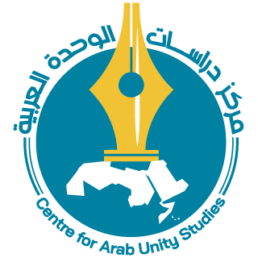
Historical Background
Since the beginning of the 20th century, the Arab region has undergone several major upheavals, particularly following WWI, a time when the world witnessed the rise of a vibrant cultural and intellectual Arab nationalist movement. This movement ambitiously sought to establish a project of Renaissance for the Arab region that would unify Arab nations on the basis of shared common features, namely a common history, a common language, a common identity, and common struggles. The political challenges of then, more specifically the struggle for independence which was spearheaded by anti-colonial movements for national liberation, generated a sense of utmost urgency for the establishment for an Arab Unity as a means of reaching independence, solutions to political and economic turmoil, and the establishment a network of cooperation and mutual assistant-ship among countries of the region.
The launch of the center
Out of this pressing need for the establishment of an Arab Unity and a project for Renaissance was born the Centre for Arab Unity Studies (CAUS). In 1975, a group of renowned Arabists called for the inauguration of a Think Tank that would carry out scientific research in the aim of contributing to the enrichment of general knowledge and to the raising of awareness on key concerns in the region. General themes of interest include the historical, political, social and economic challenges that exist within and the national, transnational, and geopolitical levels. The declaration statement of the Centre for Arab Unity Studies emphasizes the importance for an Arab unity through an incentivisation of socioeconomic development and political empowerment in the international arena. The Centre is set to carry out “independent, scientific research into all aspects of Arab society and Arab unity, free of any ties to Government affiliations, and in an atmosphere far detached from partisan politics”.
CAUS`s achievements
CAUS was established in Beirut, Lebanon as a not-for-profit organization that runs its own programs in complete and unfettered autonomy. CAUS finances its projects and programs through its own income-generating activities, particularly through the sale of peer-reviewed articles and books. Other financial sources stem from voluntary and unconditional contributions made by various institutions, individuals, and other donors who showed an interest in conducting partnerships or joint activities with the Centre.
Challenges
The center’s mission is founded on six core concepts that are innate to the Arab Renaissance project, namely that of an Arab unity, democracy, economic development, social justice, the revival of Arab civilization, and full independence at both the national and regional levels.
Over the past four decades, the Centre issued more than 1000 publications in the fields of political science, social sciences, economics, culture, history, science & technology, media & communication, nationalism, the Palestinian cause, environmental issues, education, documentation, and philosophy. It currently administers five journals: the journal of Contemporary Arab Affairs, Al Mustaqbal al Arabi, Idafat journal, the Arab Journal of Political Science, and the Arab Journal of Economic Research.
CAUS Vision
Since its inauguration, the Centre directed attention on the enrichment of dialogue and critical thinking of contemporary challenges in the Arab Region. In that regard, the Centre has organized over 165 conferences addressing key issues in geopolitical affairs, environmental issues, problems and possibilities of good governance, and various other obstacles that it perceives to be impeding the formation of an Arab Unity and an Arab Renaissance project. In addition, the Centre has set up over 90 workshops to discuss possible solutions and policy recommendations to help overcome the region’s challenges. The proceedings and outcomes of these conferences have all been documented and published by the Centre.
Center for Arab Unity Studies
Foundation, objectives, and activities
Frequently Asked Questions
Centre for Arab Unity Studies
Pages
General questions
- Click on the book you desire.
- choose your paper or electronic book (if available). Then click on “Add to Cart”
- Click on “View Cart”
- Fill in the required data
- Pay electronically to complete your purchase
You can subscribe to the journals issued by the Center in paper or electronic form, and you can only subscribe for books in a hard copy. Visit the Subscriptions page for full subscription details.
You can get your electronic version of the books published by the Center through Amazon website or Abjjad Platform. Moreover, we are currently adding electronic copies of our books from latest to oldest, so that you can order them via our site too.
You can visit our Distributors page with the needed addresses and contact information.
You can contribute to the magazine, in Arabic, through many sections subject to the publication rules and regulations, click on the link to read the conditions.
You can send the manuscript of the book in the form of “Word” document to the Centre’s e-mail: info@caus.org.lb
You can support the center through the electronic payment gateway or by sending a direct money transfer to the bank. Kindly visit the Support Center page.
Home
Nothing found.
Latest Release
A list of the latest release books on our website


The Reign of Artificial Intelligence: A Heated Debate Between a Robot and a Human
20 $ – 30 $Print on Demand
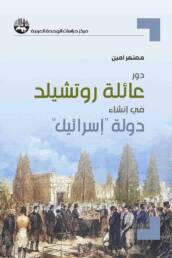

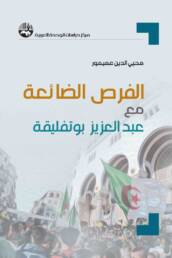
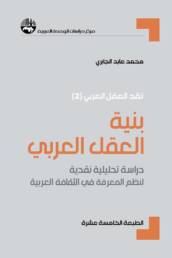
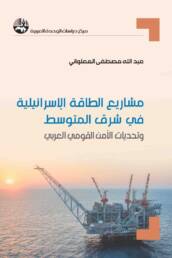
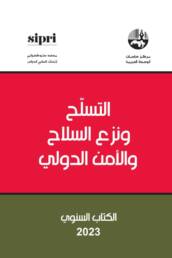


Nothing found.
About us
Centre for Arab Unity Studies
The urgency for the establishment for an Arab Unity as a means of reaching independence, solutions to political and economic turmoil, and the establishment a network of cooperation and mutual assistant-ship among countries of the region.
Trainings
Learn more about the training courses offered by the Center for Arab Unity Studies
Journals



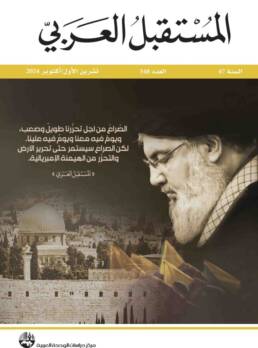

Best Selling Books
Nothing found.
April 30, 2024
The Trap of Urban Planning Development in Jerusalem
April 17, 2024
The Italian
February 15, 2024
American Islamophobia: Understanding the Roots and Rise of Fear
February 12, 2024


